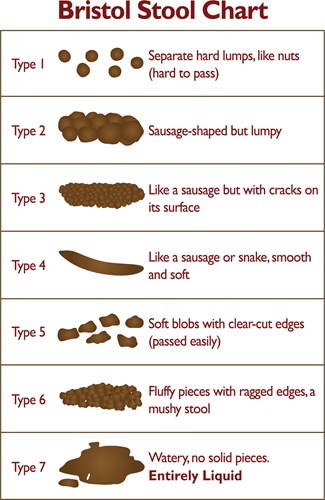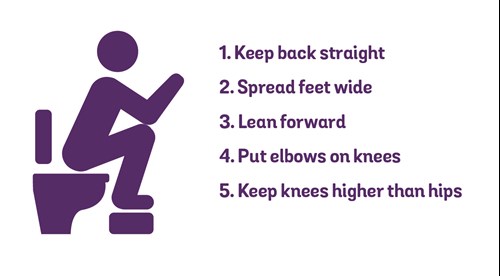Blockage or stricture
Constipation can be due to a blockage in the large bowel. It can also be caused by a narrowing of a section of the bowel, called a stricture. A section of the bowel wall can become narrow due to bowel wall thickening, inflammation, or scarring. This can make it harder for poo to pass through.
Inflammation of the rectum (proctitis)
Inflammation of the rectum (proctitis) is common in people with Crohn’s or Colitis. Severe constipation can be a symptom of proctitis. Other symptoms include the feeling that you need to go to the toilet but your bowel is empty (tenesmus), urgency, and bleeding.
Irritable bowel syndrome (IBS)
IBS is sometimes confused with Inflammatory Bowel Disease (IBD), but is a different condition. IBS can cause similar gut symptoms to Crohn’s and Colitis, including constipation. But it does not cause inflammation of the bowel or bleeding. Some people with Crohn’s or Colitis develop IBS-like symptoms even when their Crohn's or Colitis is under control.
Low-fibre diet
Some people find that high fibre foods can make symptoms of Crohn’s and Colitis worse. Because of this, they may have reduced the amount of fibre in their diet. But high fibre foods absorb water from the large bowel and add bulk to your poo. This makes it easier for poo to pass through your bowel. So, if you have reduced your intake of fibre, you may find that you become constipated.
Low fluid intake
Not drinking enough is a common cause of constipation, even in people without Crohn’s or Colitis. The average adult needs to drink about 6 to 8 glasses of fluids a day. This is around 1.2 litres in total, which equals 6 x 200ml glasses or 8 x 150ml glasses. Water and diluted squash are good choices to stay hydrated. When you are well hydrated, your pee should be a pale-yellow colour.
Small-intestinal bacterial overgrowth (SIBO)
Small-intestinal bacterial overgrowth (SIBO) is a condition where there are more bacteria in the small bowel than usual. This overgrowth occurs when food moves through the gut more slowly than usual. If the bacteria mostly produce methane, SIBO can show as constipation. SIBO is often associated with Crohn’s and Colitis.
Certain medicines
Constipation can be a side effect of some medicines. Common examples include anti-diarrhoeal medicines, iron supplements, and painkillers such as tramadol and co-codamol.
Damage to the anal muscles
Damage to the anal muscles following vaginal childbirth or pelvic surgery.is a common cause of constipation in women.





